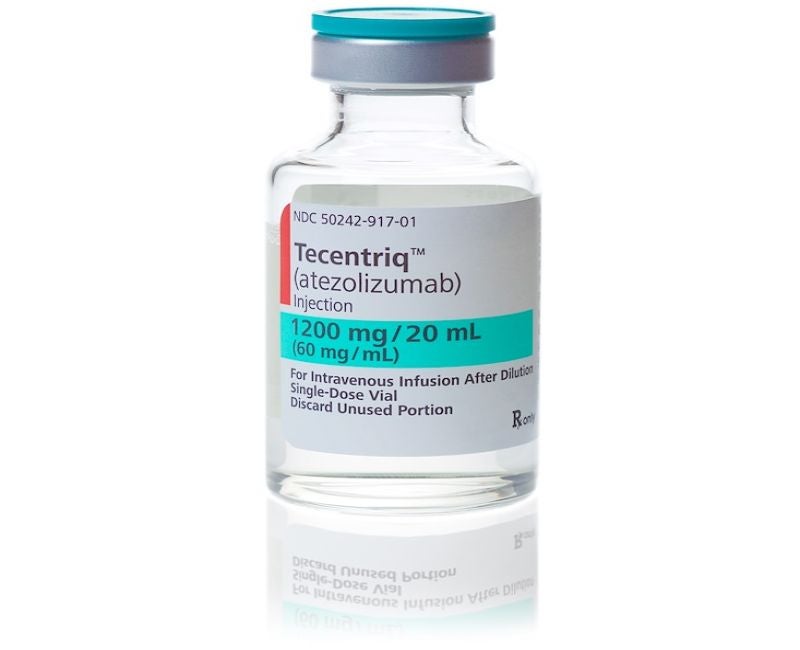
Roche has said that the Phase III IMspire150 clinical trial of Tecentriq (atezolizumab) plus Cotellic (cobimetinib) and Zelboraf (vemurafenib) met its primary endpoint in treatment-naive patients with BRAF V600 mutation-positive advanced melanoma.
Roche has said that the Phase III IMspire150 clinical trial of Tecentriq (atezolizumab) plus Cotellic (cobimetinib) and Zelboraf (vemurafenib) met its primary endpoint in treatment-naive patients with BRAF V600 mutation-positive advanced melanoma.

Discover B2B Marketing That Performs
Combine business intelligence and editorial excellence to reach engaged professionals across 36 leading media platforms.
Tecentriq is an anti-PD-L1 monoclonal antibody, while Cotellic and Zelboraf target MEK1/2 proteins and certain mutated forms of BRAF, respectively.
The randomised, multi-centre, double-blind, placebo-controlled Phase III trial compared the safety and efficacy of the Tecentriq combination to placebo plus Cotellic and Zelboraf.
The primary endpoint was progression-free survival (PFS), while secondary endpoints included overall survival, objective response rate and duration of response.
According to the trial data, the Tecentriq combination demonstrated a significant and clinically meaningful improvement on the primary endpoint.

US Tariffs are shifting - will you react or anticipate?
Don’t let policy changes catch you off guard. Stay proactive with real-time data and expert analysis.
By GlobalDataThe combination decreased the risk of disease worsening or death compared to placebo and the Cotellic and Zelboraf combination.
The safety of the combination was found to be consistent with the known profiles of the individual drugs.
Roche chief medical officer and Global Product Development head Levi Garraway said: “By combining a cancer immunotherapy with targeted therapies, we hope to offer a new approach that improves outcomes for people with advanced, BRAF-mutant melanoma.”
The company is planning to discuss the results with health authorities, including the US and European regulatory agencies.
Tecentriq’s clinical trial development programme comprises more than 50 ongoing studies of the drug as a single agent and combination therapy.
In addition to skin cancer, the drug is being developed to treat breast, ovarian, colorectal, lung, prostate, kidney, head and neck, liver, bladder and blood cancers.
Last month, Roche announced positive data from the Phase III IMbrave150 study of Tecentriq plus Avastin in unresectable hepatocellular carcinoma (HCC) patients.





